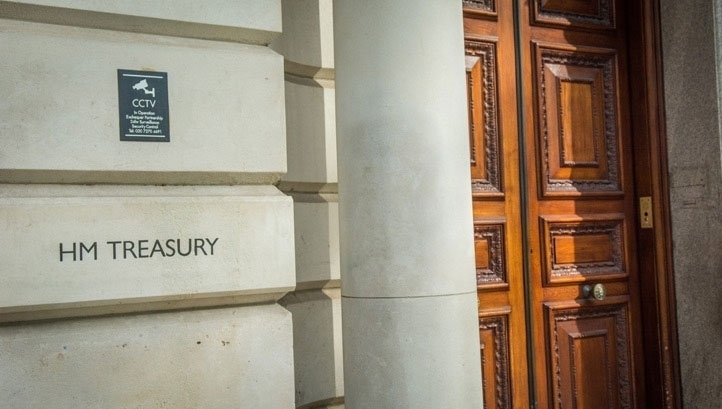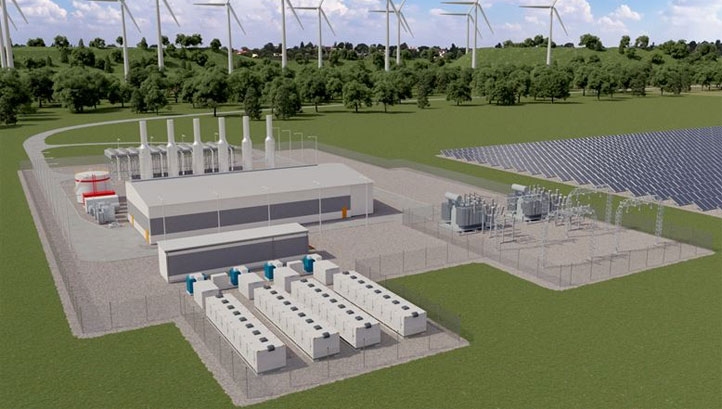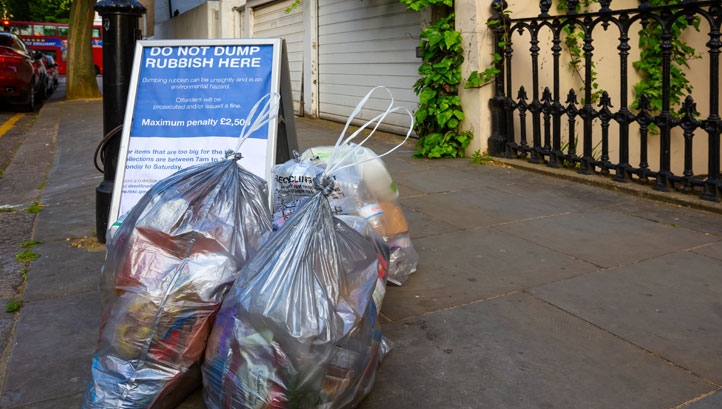The Treasury and HMRC are failing to respond to a "climate storm breaking all around us", failing to make the necessary changes to tax systems and short-term funding packages needed for the 'just' transition to net-zero.

After this year's Budget and the first 'Tax Day', further announcements are due in the second half of the year
That is according to a damning new report from the Public Accounts Committee (PAC) today (28 April).
Building on the Committee’s recent report on net-zero delivery, which accused the Government of having no credible plans in the short and mid-term to back up its long-term climate goals, the report takes a specific look at the ways in which Government finance must transform.
One of the major recommendations is around tax system reform. After the recent Tax Day paperwork made no reference to climate or energy, the report argues that the Government has a “very limited view of the role of tax” in delivering climate targets – both by incentivising low-carbon processes and technologies and making high-carbon behaviour from businesses and individuals more expensive. MPs on the PAC heard evidence that little progress has been made in this field since 2011.
Specifically, the PAC want the exchequer departments to broaden the definition of which taxes are ‘environmental’. It also wants the Treasury to assess the environmental impact of all potential tax changes and publish this information from the next Budget. For a longer-term view, it could develop a roadmap of tax changes in the coming decades, as called for by the Institute for Government. These measures, it claims, could prevent the prioritisation of short-term measures, such as fuel duty freezes.
The PAC argues that these major challenges are partly down to the departments “viewing the consequences of environmental taxes as the responsibility of other government departments”.
These recommendations come after a Green Alliance briefing, published earlier this week, revealed that more than six in ten Brits support ‘green’ tax reforms.
Just transition funding
As well as funding raised through taxes, the report takes a look at funding allocated from central Government coffers as part of limited-term initiatives like Sector Deals and the Ten Point Plan.
It reiterates previous research quantifying the gap between past investment levels and those needed to deliver net-zero, in critical sectors like transport and nature-based solutions.
The energy sector is the main focus. MPs are concerned that the Treasury is not yet able to explain how it will manage declining revenues from fossil fuel production and consumption – let alone outline how to ensure a ‘just’ transition, in which the most vulnerable receive the most support.
The 2030 ban on petrol and diesel cars, the report argues, means that the Government must act now to prepare for declining levels of fuel fury. A timetable for consultations should be drawn up by the next Budget, the report states, along with details of how these consultations will involve different parts of society.
These recommendations come after the controversial North Sea Transition Deal was published. Despite calls to cap production and funnel funding into supporting affected communities with reskilling, the Government failed to rule out new licencing.
Summarising the report, PAC chair Meg Hillier MP said: “The economic revolution required to abandon fossil fuels and reach net-zero must be the greatest co-ordinated ask, of governments around the globe, in history.
“But the UK government has been blithely issuing ever more ambitious climate targets for years now, with no sign of a roadmap to reach any of them. The departments in charge seem stuck in a bygone era, with little sign of the innovative thinking needed to achieve all this.
“Every week brings reports of some climate record disturbingly broken - the hottest year, the hottest decade, warming seas rising faster than we feared, carbon emissions raging back even as the economy takes more faltering steps. Now, we are six months from hosting the next major global climate summit and the climate storm is breaking all around us. HMRC and HMT need to catch up fast.”
Green economy reaction
Reacting to the report, Green Alliance’s head of resource policy Libby Peake said: “Tax is not being used to its full potential to achieve the government’s environmental goals. That the impact of the few existing environmental taxes on behaviour is not even being adequately monitored is also extremely worrying.
“For the Treasury – and the rest of society – to play a full role in the transition to a net zero, nature-rich economy, all tax measures must be assessed against their environmental impact.”
A Green Alliance briefing, published earlier this week, revealed that more than six in ten Brits support ‘green’ tax reforms.
The Energy and Climate Intelligence Unit’s (ECIU) head of analysis Dr Jonathan Marshall added that getting the tax system aligned with long-term environmental goals “has been an issue for years”.
“Luckily, the impending Treasury net-zero review brings with it the perfect opportunity to put that right,” Marshall said. “Rectifying a tax system that subsidises high-carbon heating and favours higher-emitting modes of transport will avoid steeper emissions reductions in other parts of the economy. It will also provide clear market signals to allow the private sector to take on a lot of heavy lifting in cutting carbon, removing costs from state books. A holistic look at the whole system can ensure that changes are made well and made once, capitalising on public backing for polluting products costing more and setting the UK up to hit its world-leading carbon targets.”
Sarah George

